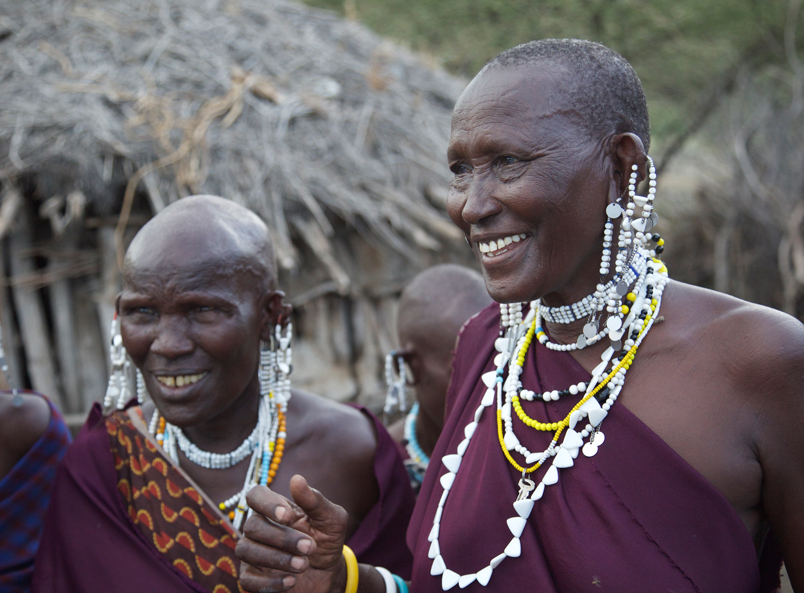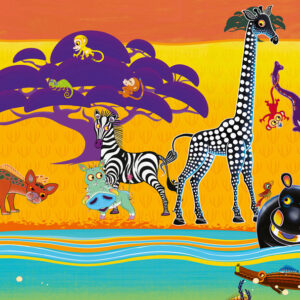The art of memory: discovering Tanzania’s handcrafted treasures

Buying a keepsake in a place where you’ve had an unforgettable travel experience holds strong sentimental value.
Choosing handmade souvenirs adds an even deeper meaning, as they are often closely tied to local culture.
Many souvenirs represent the most authentic expression of local traditions, telling the story of Tanzanian heritage through materials, patterns, and symbols.
This post aims to highlight exactly that side of your safari—one made of tradition, color, craftsmanship, and solidarity.
What to buy in Tanzania
For a tourist, Tanzania is a true paradise of nature and wildlife, rich in colors, shapes, and scents. But this country, so deeply rooted in tradition, is also a treasure trove of local craftsmanship, where every single item tells a story of creativity and heritage.
By purchasing these handcrafted goods, travelers don’t just bring home a beautiful keepsake, they also help support the livelihoods of local families and contribute to sustaining rural economies.
The variety is truly vast, with many authentic and one-of-a-kind products to choose from. Let’s explore some of the most iconic examples.
TingaTinga Paintings
In the 1960s, Edward Saidi Tingatinga made these paintings iconic and instantly recognizable. Colorful and vibrant, they depict scenes of everyday life, stylized human figures, and traditional patterns. A true explosion of joy, they capture the brightness and spirit of Tanzanian culture.
Tinga Tinga artworks are available in a wide range of sizes and styles, making them perfect souvenirs.

Maasai Jewelry
For the Maasai, a fascinating nomadic people, jewelry is a powerful expression of cultural identity.
Tiny colorful beads are carefully arranged into vibrant necklaces, bracelets, and ornaments, each carrying a deep and unique meaning.
Did you know that, for example, red symbolizes courage, blue represents energy and the sky, and green stands for land and production?
Visiting a Maasai village offers the chance not only to purchase these handcrafted pieces directly from local artisans, but also to learn the rich symbolism behind what you’re bringing home.
Makonde Tribe Carvings
The Makonde tribe, originally from southeastern Tanzania and northern Mozambique, is renowned for its stunning wood carvings, each rich in symbolic meaning. Their artistry is traditionally divided into two main styles:
- Shetani (spirits): abstract and often grotesque sculptures representing good or evil spirits, characterized by twisted, imaginative forms.
- Ujamaa (brotherhood): carvings featuring interconnected human figures stacked together, symbolizing family, community, and solidarity. Often crafted from dark ebony wood, these intricate sculptures are true works of art that require exceptional skill and patience.
Khanga and kitenge fabrics
These are the iconic fabrics of Swahili culture, found everywhere across Tanzania:
- Khanga: a colorful printed cotton cloth featuring bold patterns and a decorative border, often including a Swahili saying or proverb (known as the jina). Traditionally worn by women, khangas serve many purposes—used as baby carriers, garments, headwraps, or even home decorations.
- Kitenge: similar to the khanga but without the border or proverb, the kitenge is made of thicker, more durable fabric. It’s commonly used to create clothing for both men and women, as well as accessories and home decor. Lightweight, vibrant, and practical, the kitenges is a colorful souvenir that captures the spirit of Swahili fashion and expression.
Woven baskets and mats
In Tanzania (especially in regions like Iringa, the Zaramo communities along the coast, the Chagga areas near Kilimanjaro, and on islands like Zanzibar) there’s an ancient art form rooted in the tradition of weaving.
Rugs, baskets, bags, and mats are all handmade using natural fibers such as grasses, banana stems, palm leaves, and sisal.
Ngoma drums
Ngoma drums are iconic instruments, essential to dances, ceremonies, and rituals across Tanzania.
They are crafted by hollowing out tree trunks and stretching animal skin tightly over the top. Often decorated with traditional carvings and patterns, they serve as powerful cultural symbols with deep ancestral roots.
Tanzanite: the gem of Kilimanjaro
The Kilimanjaro region is home to a captivating gemstone: Tanzanite. Blue-violet in color, it was discovered in a small area of Tanzania. Some experts predict that the reserves could be depleted within a few decades.
Found only in this part of the world, it offers a luxurious and highly sought-after souvenir.
For peace of mind, make sure to buy from reliable, certified sellers. It’s the best way to ensure what you’re getting is truly authentic.
What to buy in Zanzibar
Zanzibar is famously known as the Island of Spices, and for good reason. This tropical paradise offers an array of fragrant, colorful products that make for meaningful gifts or keepsakes. You’ll find fresh, high-quality spices like cloves (the island’s most prized spice), nutmeg, cinnamon, vanilla, cardamom, black pepper, turmeric, and ginger.
Wander through the lively local markets and you’ll also come across unique tea and coffee blends, bursting with local flavor.
But there’s more to Zanzibar than just spices. The island is also rich in handmade Swahili textiles and stunning wood carvings that reflect a blend of African and Arab influences.
One standout souvenir? Miniature versions of the intricately carved doors found throughout Stone Town, iconic symbols of the island’s history.
You’ll also find carved sculptures, handcrafted items made from natural fibers, and a variety of coconut-based products. Coconut is a cornerstone of the local economy, and you’ll see it transformed into soaps, oils, lotions, and even small items carved from the shell or wood.
A fun fact: as you explore the winding alleys of Stone Town, you might stumble upon quirky tourist souvenirs like miniature Freddie Mercury statues (he was born here!), vintage-style maps, old prints, and postcards.
One last tip: don’t be shy about bargaining! Haggling is part of the fun and a big part of the local shopping culture!
Turn your trip into an authentic experience with Zohar Safaris
Local markets, such as Stone Town’s vibrant stalls or the Mwenge Carvers Market in Dar es Salaam, offer a truly immersive experience.
Here, you can find handcrafted goods, spices, textiles, and artworks that reflect the authentic soul of the country. These are special stops along a journey filled with nature, traditions, and a deep connection to the land.
Zohar Safaris offers guided tours of Zanzibar’s spice plantations, complete with tastings and local cooking classes.
It also organizes exclusive itineraries such as “Wildlife, culture & Zanzibar,” combining wildlife observation, cultural immersion, and beachside relaxation, along with other tailor-made experiences based on your interests.
Would you like to personalize your itinerary by combining wildlife adventures, cultural moments, and meaningful encounters with local communities?
Get in touch and let us craft your tailor-made journey through Tanzania.
